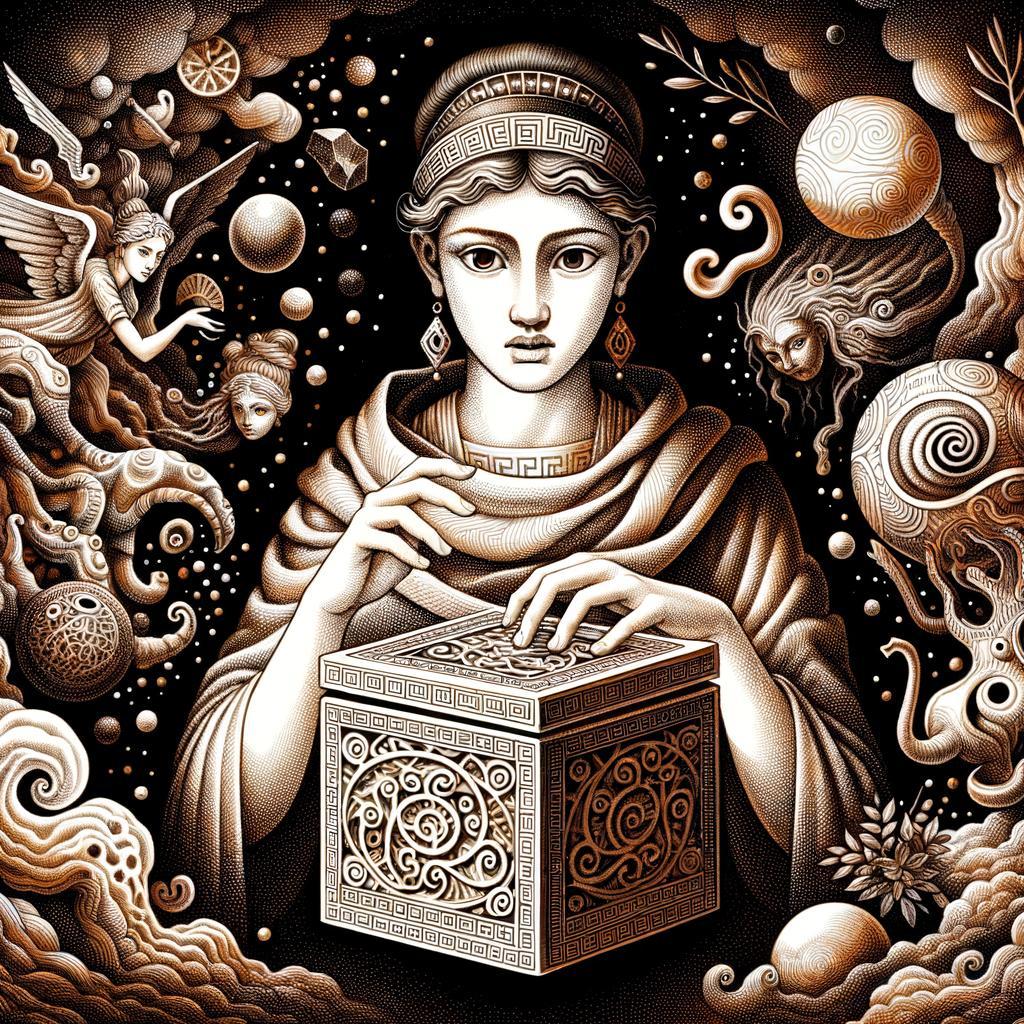Pandora's Box
AI and Folklore
Posted by Chris Sissons on Dec 13, 2023
AI and Folklore » Chris Sissons and Pandora
Minerva is very excited about this story, even though it doesn’t feature any owls. She has a small part in the story, as her alter-ego Athene.
It’s important to remember that the Gods were immortal and immensely powerful. This means they are capricious and don’t think through the consequences of their actions.
Prometheus was a Titan and sympathetic to humanity who at the time were all male, it seems. Minerva wants to know how that was supposed to work; she should know, given the way she was born!
Any road, Prometheus stole fire from the Gods and gave it to humanity and so he was punished by having his vitals pecked out by eagles. Be thankful it wasn’t owls.
Zeus meanwhile was still annoyed and so decided to get revenge on humanity by creating the first woman. I’m not making this up.
She was called Pandora and was very beautiful (naturally) and was given gifts by the Gods such as “Athena gave her wisdom and skills, Aphrodite granted her beauty and grace, and Hermes gifted her curiosity and cunning.” (Minerva wants you to know that wisdom and skills are obviously the most useful.) (Aphrodite’s was superfluous to requirements and you have to watch that Hermes, as slippery as a greased piglet, apparently.)
To rub it in, Zeus despatched Pandora to Prometheus’ brother, Epimetheus, who, despite his brother’s warning never to accept gifts from the Gods, fell in love with her and married her. (Presumably marriage between men was already a thing.)
Zeus gave Pandora a wedding gift, a jar (or was it a box) but she was never to open it. The trap closes. Hermes' gift of curiosity worked, Pandora opened the jar and the rest is history.
Minerva reckons that despite her starring role in this story, it also tells us something about AI. I have my doubts. The story is the wrong way round. This is not about the consequences of curiosity because the whole situation was created by Zeus as an act of revenge.
Minerva insists that “This story parallels the development of AI in the sense that humanity creates AI with great potential, but there may be unintended consequences if not handled carefully.” But in her version, all the good things escape first and leave nemesis behind to emerge from the box when humanity forgets caution. Whereas in the traditional version, the bad things escape, leaving behind Hope, banging on the lid, wanting to be let out.
You see, Zeus’ scheme backfired. He released strife into the world and allowed it to grow to the proportions we see today. But Pandora listened and was persuaded to give Hope a chance. Maybe Minerva’s gift of wisdom paid off.
Is it possible AI might bring hope? How might it help us solve the problems we face?
This is the fifteenth in a series of posts about AI and Folklore. I define Folklore as inclusive of religious stories and some from modern popular culture. Minerva assists in all the posts, sometimes without attribution!
The first post in the series is Life with Minerva. The last post was Blodeuwedd's Flower Power and the next is Father Christmas. If you press the button marked "Follow", you'll receive notice of new posts.
As always, please comment. As well as your insights into AI and Folklore, I'd appreciate suggestions of stories I might cover. These could be from folktales, myths, religious stories as well as general literature.
I've finally put my foot down and told Minerva she must operate in-house and not under the influence of the Night Cafe or owls. This is her image of Pandora and it's more or less normal! No owls. Grumpy Goddess!

Comments
Leave a comment.
Leave a comment.



 )
)